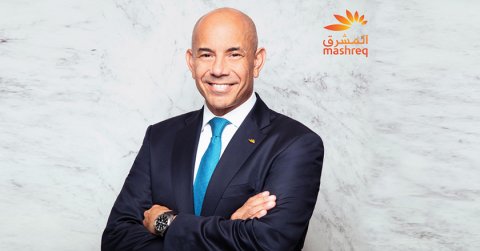
Mohamed Abdel Razek, Group Head of Technology, Transformation & Information at Mashreq, explores the value of increased financial inclusion for the region in this exclusive op-ed.
The Middle East and North Africa (MENA) region has the lowest proportion of financial account ownership in the world. According to the World Bank’s Global Findex Database, only 48 percent of adults in the region, excluding high-income economies, have an account. This number is 23% lower than the global average for developing economies.
Financial inclusion is an important driver of sustainable development, as it empowers individuals and businesses to contribute to the formal economy, in addition to its positive social impact in reducing inequalities. That’s why governments across the region are proactively working to change the status quo in partnership with key ecosystem players, such as banks, non-banking financial institutions, and payment service providers (PSPs). And financial technology (fintech) is emerging as a crucial enabler of these efforts.
Serving the underserved
Rural communities, smallholder farmers, informal workers, SMEs, the underprivileged, women, youth, the elderly, and people with disabilities are among the groups most frequently excluded from the formal financial system. The reason behind the lack of financial inclusion is three-dimensional, involving remoteness, time, and cost which are mostly associated with traditional financial services. Digital financial services, on the other hand, are cost-effective, delivered in real time, and available at the tap of a button.
By providing simple, streamlined, customer-centric banking experiences, fintech is redefining the ways people pay, reducing their dependence on cash, and enhancing their financial well-being. It also facilitates the creation of tailored, locally relevant solutions to real problems on the ground.
Innovative technologies serve as the backbone of mobile banking applications, which help unbanked and underbanked segments of society overcome obstacles related to the remoteness of bank branches, high cost of financial services, and lack of trust in the traditional financial system. Meanwhile, they enable already financially included populations to benefit from faster and more efficient financial services that bring unprecedented convenience into their lives.
A prime example is the e& Neo platform, available via My Etisalat app in Egypt. The market-first solution, launched in partnership between Mashreq and e&, supports the country’s Financial Inclusion Strategy (2022-2025) by allowing customers to access a variety of seamless and secure banking services directly from their mobile phones. e& Neo combines Mashreq’s cutting-edge technology and expertise with the telco’s reach to serve the financial needs of Egypt’s sizeable population.
With the mobile internet penetration rate currently standing at 51% and rising steadily, the Middle East is well-poised to unlock the full potential of such solutions, powered by advanced fintech, towards driving financial inclusion.
Building on strong foundations
To accelerate the growth of the fintech sector and make the most of its capabilities, it is critical to develop a robust and secure digital infrastructure, ideally one that is interoperable across the region. It is also vital to expand access to information and communication technology (ICT) to underserved segments. Another imperative is establishing strong regulatory frameworks that strike the right balance between oversight and creating an enabling environment for innovation.
Furthermore, financial education plays a pivotal role in tackling barriers to adoption. To bring people on board, it is essential to not only build financial literacy but also raise awareness about the use of fintech and its advantages while addressing common concerns about security, privacy, and data protection. This would help the older, less tech-savvy segments of society also reap fintech’s benefits, just like the younger, digital natives do.
Harnessing the power of fintech to extend the benefits of the digital economy to all requires collective efforts of all ecosystem stakeholders. Only this way can we achieve true financial inclusion without leaving anyone behind.
Image Credit: Mashreq





